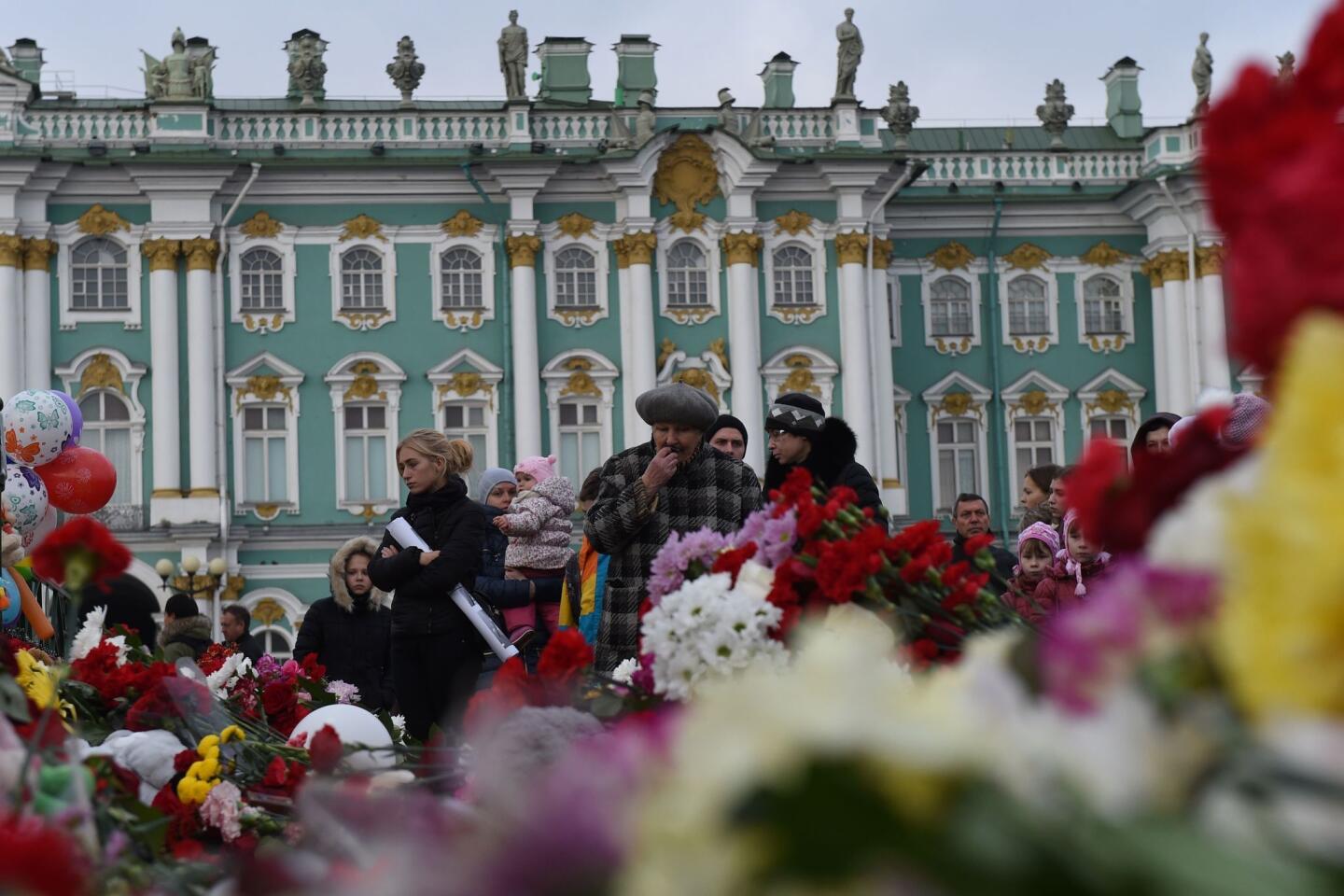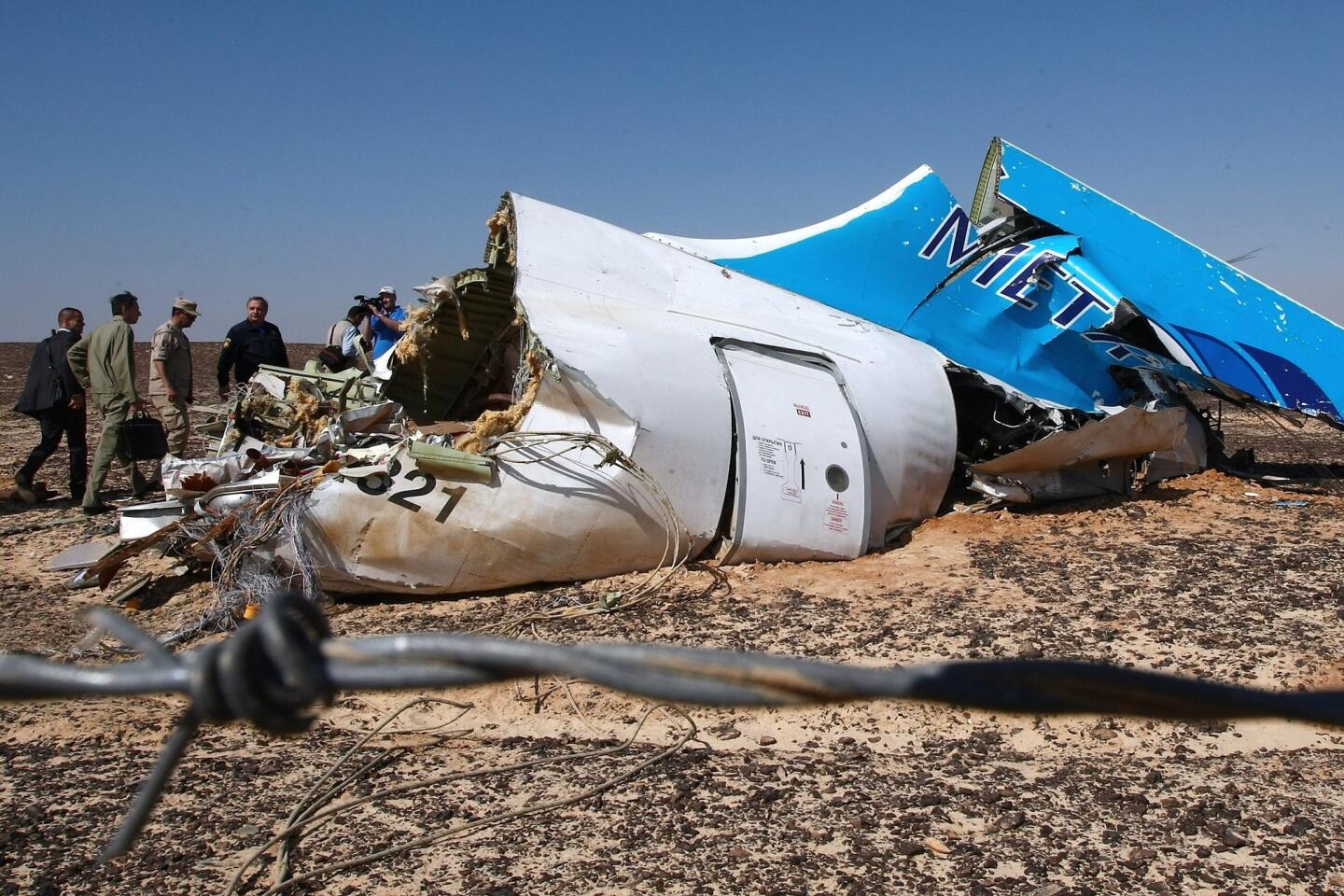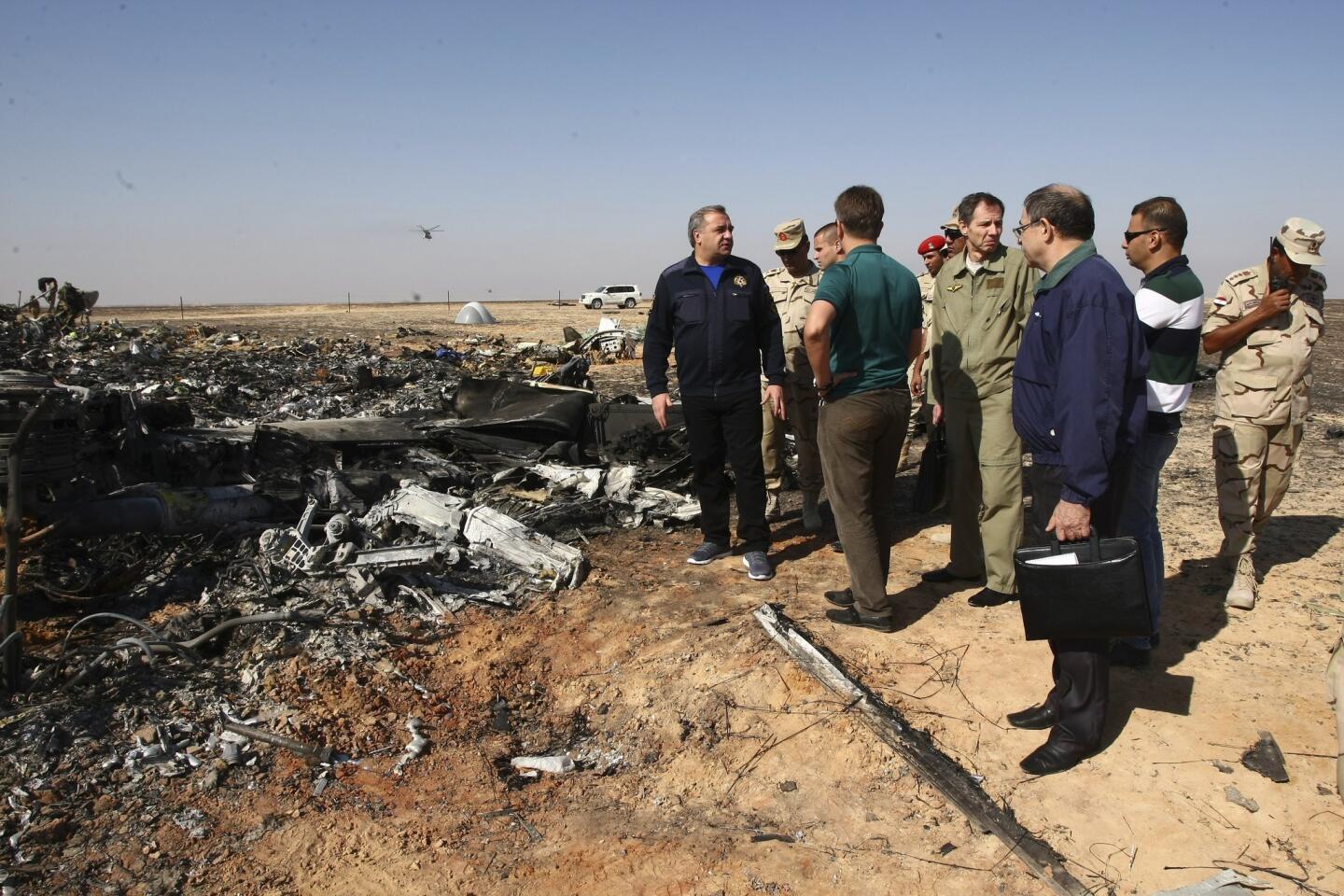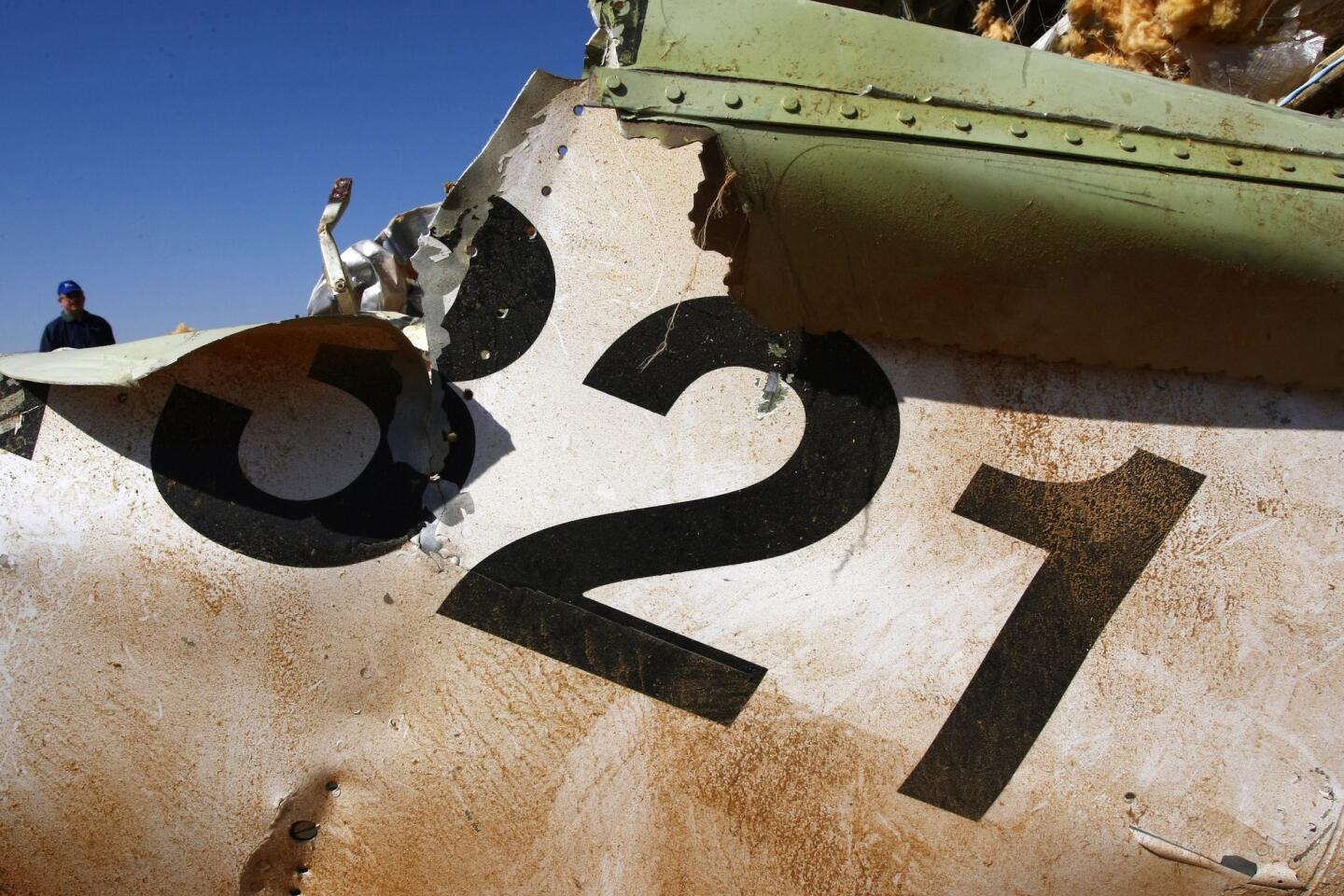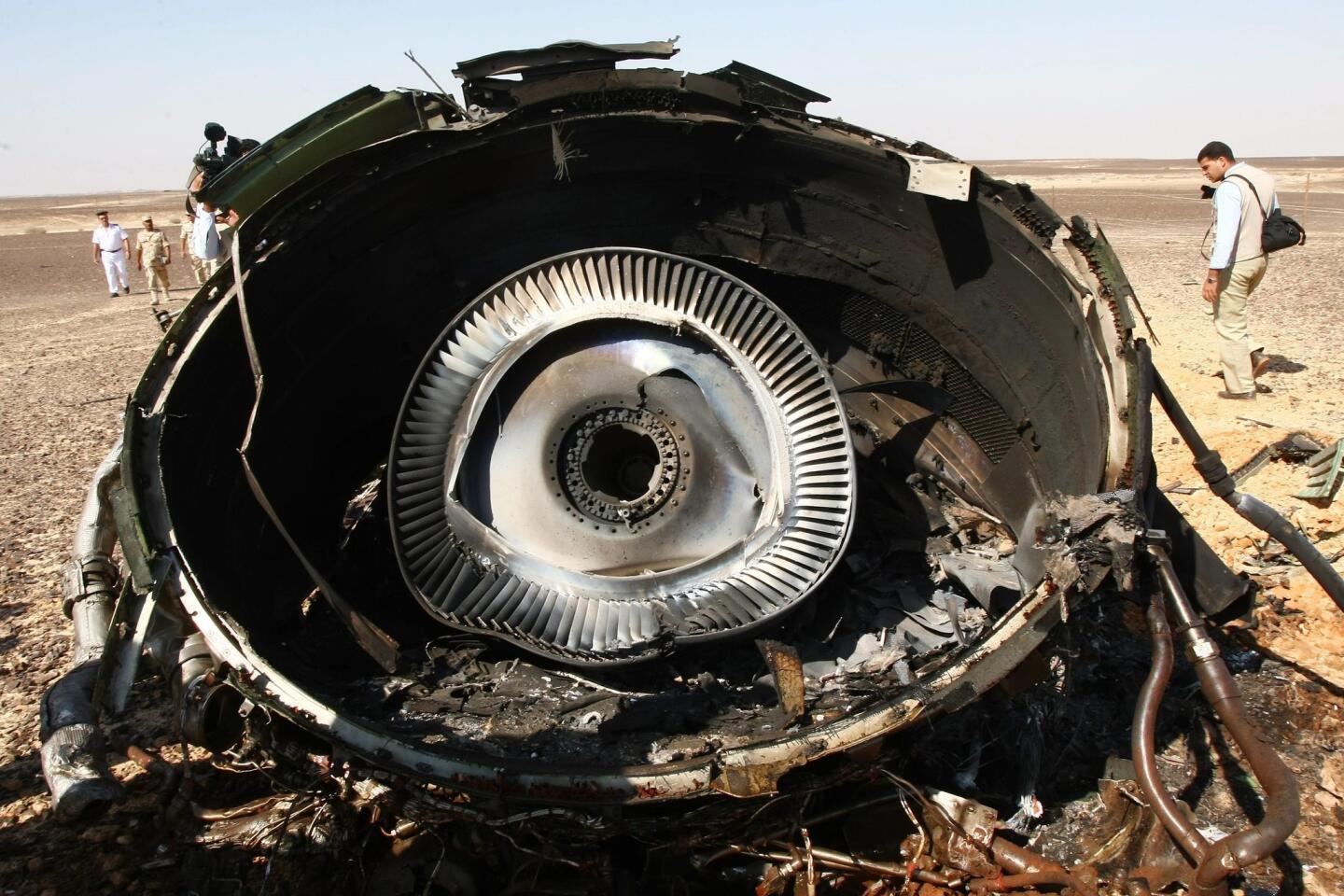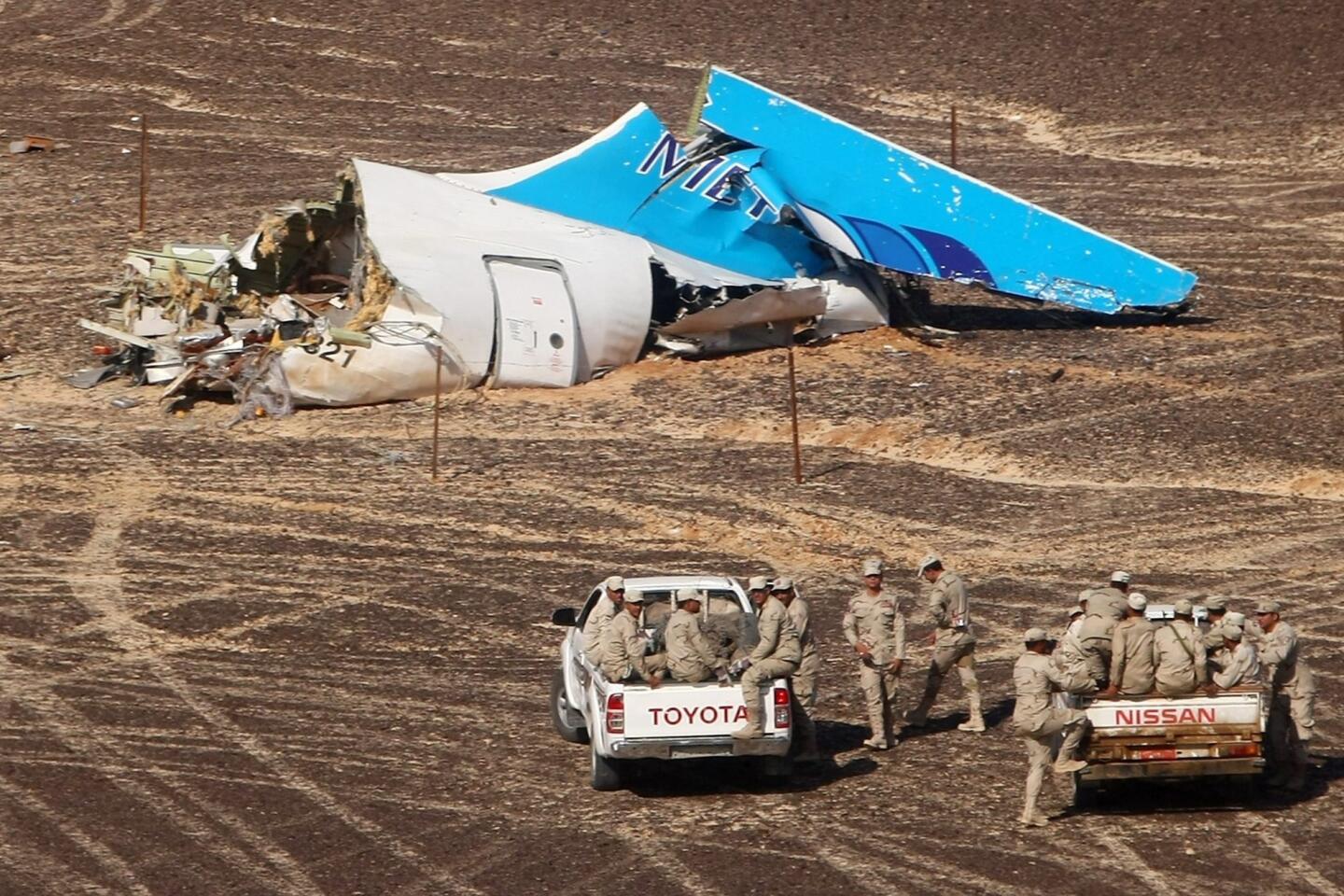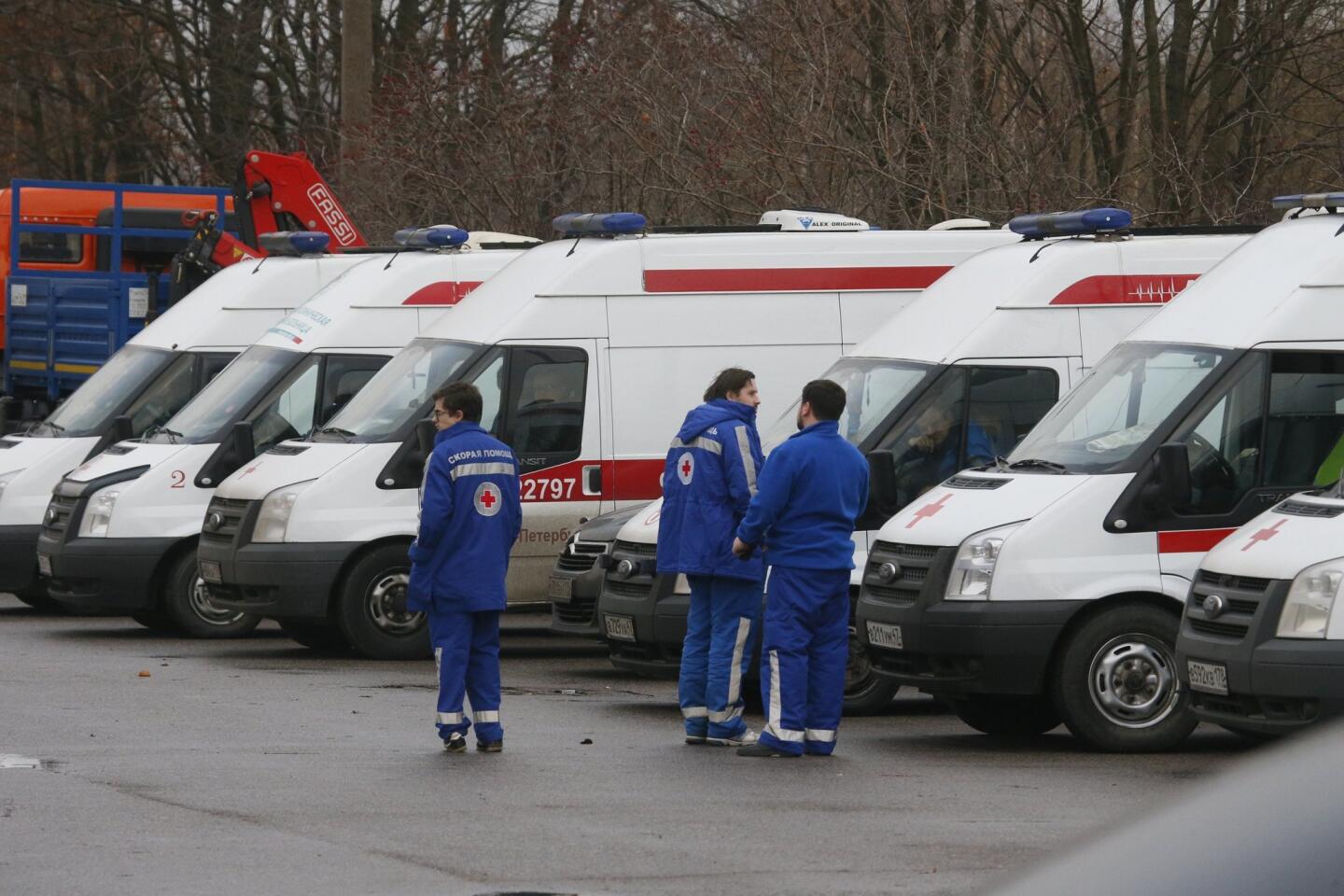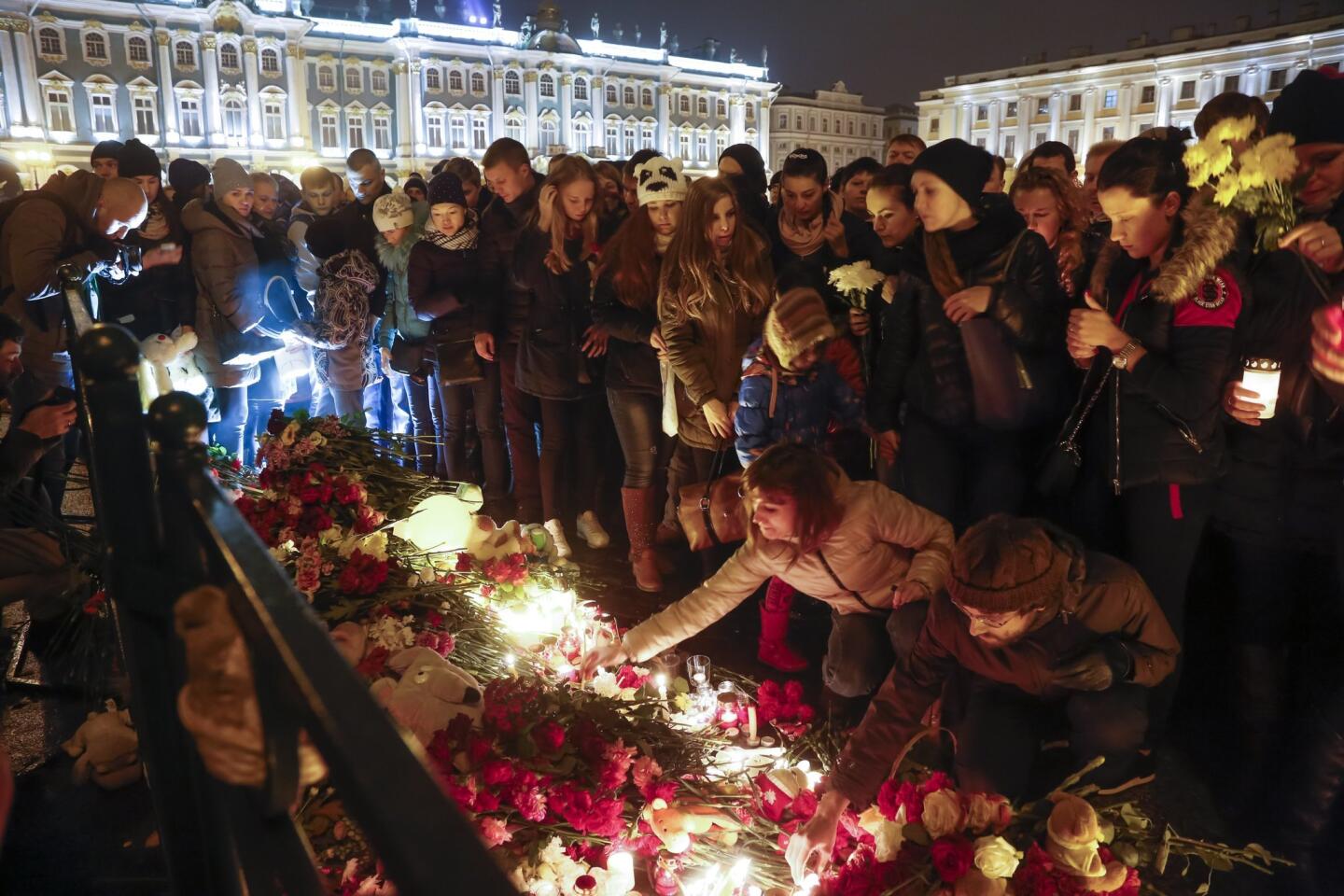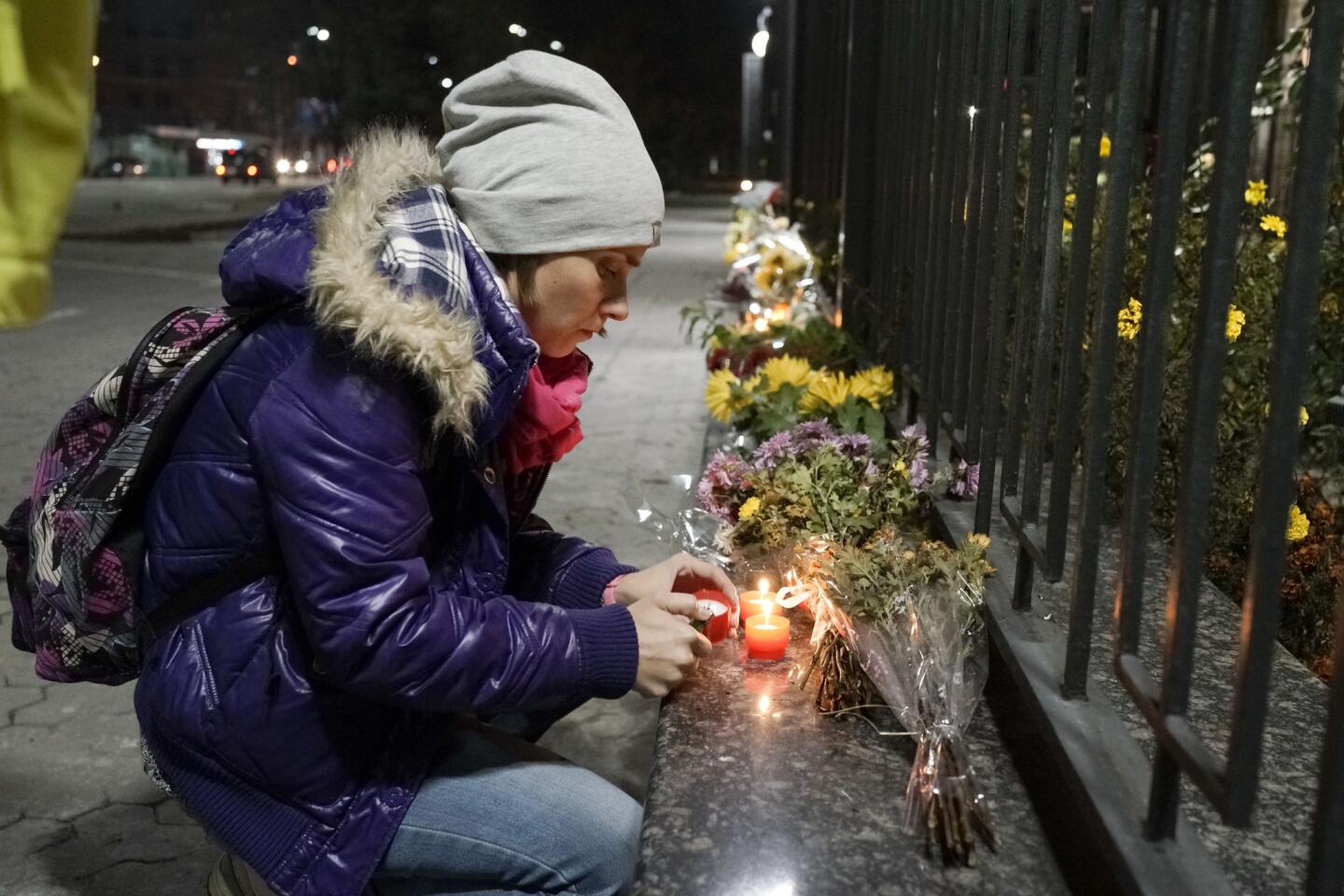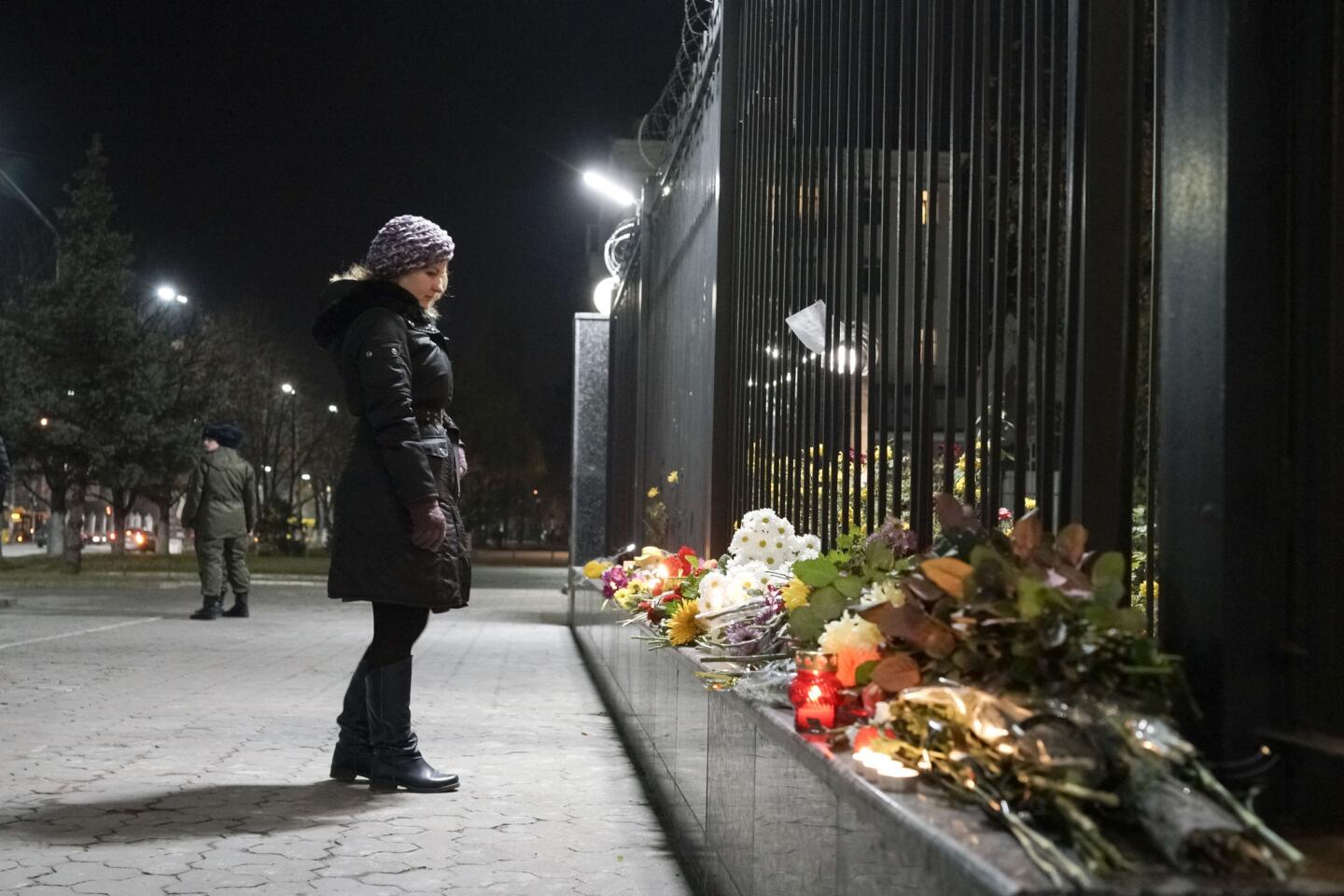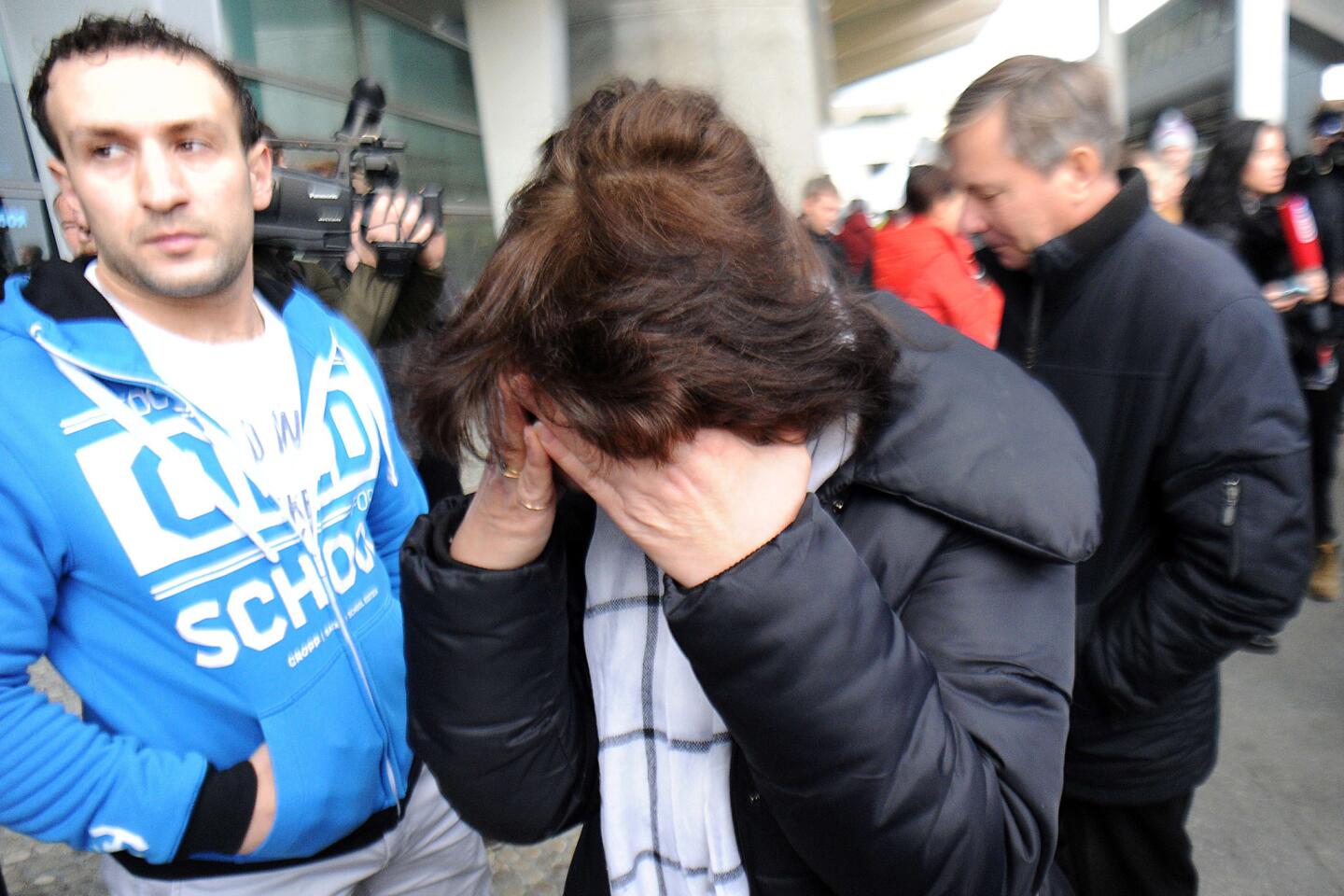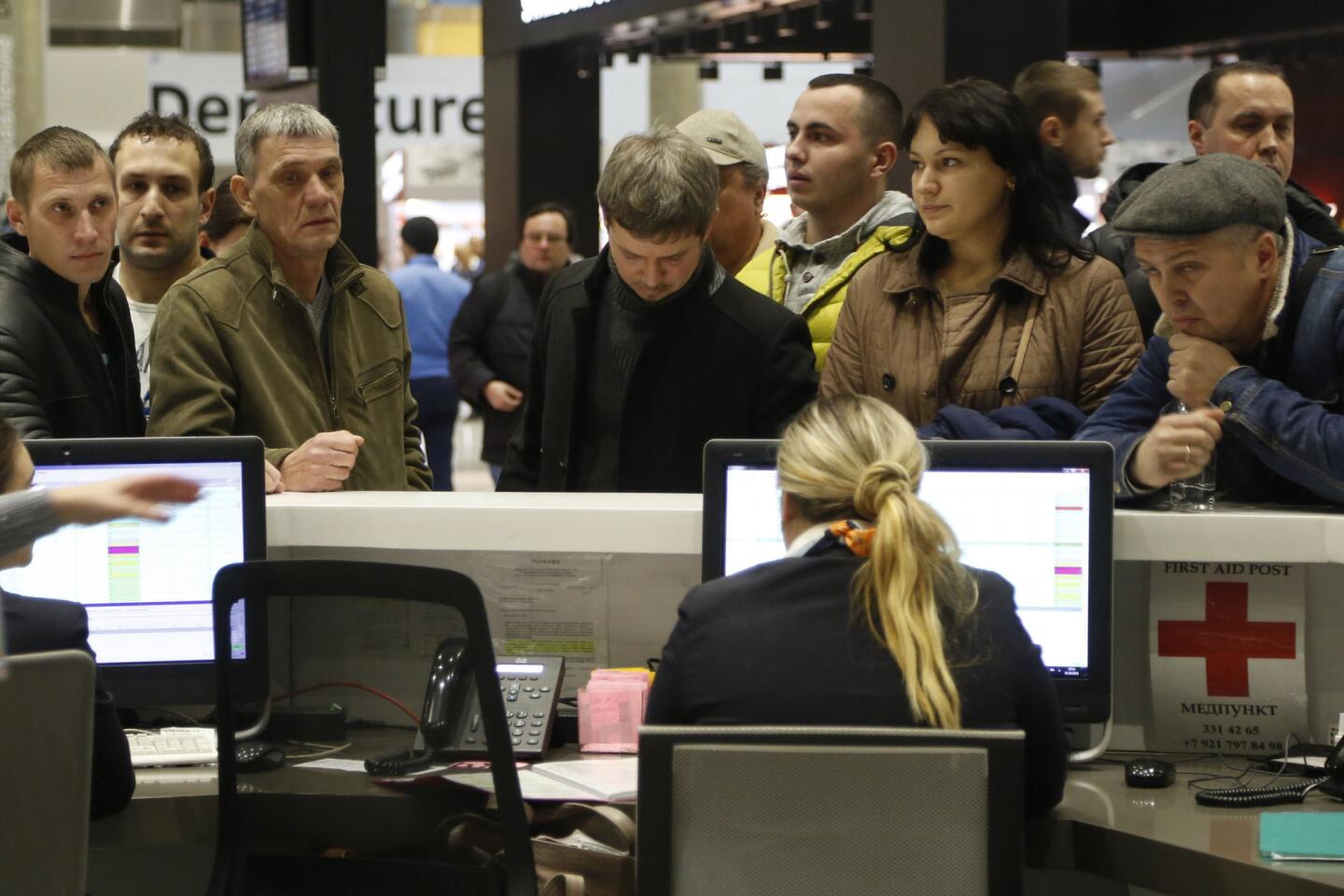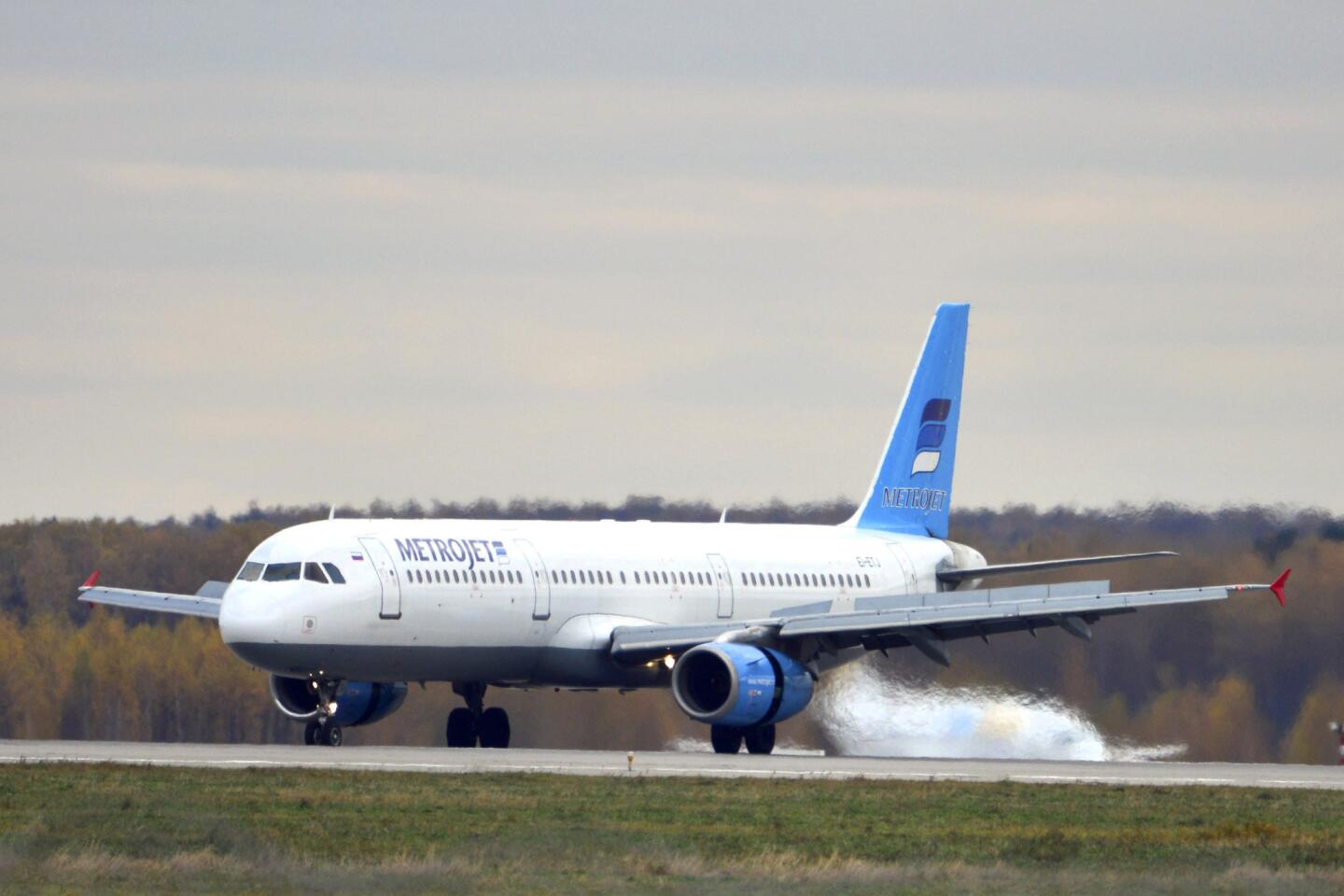U.S. agencies eyeing a bomb as possible cause of Russian airliner crash
- Share via
Reporting from Washington — U.S. intelligence agencies are operating under the theory that a bomb exploded on the Russian jetliner that crashed Saturday in the Sinai Peninsula but have not gathered definitive evidence on what brought the aircraft down, said a U.S. official who spoke on the condition of anonymity to discuss internal assessments.
Analysts are combing through electronic and digital communications intercepted from Islamic State as well as extremist groups in Egypt and Sinai before and after the crash to see whether a terrorist group played a role in the crash, the official said.
No U.S. citizens were aboard the flight, so direct access to the crash site, the flight data and voice recorders and plane parts by U.S. aviation, law enforcement and intelligence agencies has been limited. FBI bomb experts have not been invited to the scene, the official said.
British officials also suggested that an explosion might have brought down the flight, with Foreign Secretary Philip Hammond saying Wednesday that the British government has concluded there is a “significant possibility” that a bomb caused the crash.
Citing those concerns, the British government earlier Wednesday canceled all flights to Britain from the Egyptian resort of Sharm el Sheik. Within hours of the crash, multiple airlines announced that, as a cautionary measure, they would reroute their flights to avoid crossing over the Sinai desert.
“We have reviewed the information we have available from a range of sources concerning the Russian aircraft crash in Sinai at the weekend,” Hammond told the BBC. “As a result, we have concluded there is a significant possibility that the crash was caused by an explosive device on board the aircraft.”
A spokesman for Prime Minister David Cameron, speaking on customary condition of anonymity, described the suspension of flights as a “precautionary measure” while an investigation continued on what caused Metrojet Flight 9268 to apparently break up in the air. All 224 people aboard were killed.
Although analysts initially dismissed claims by an extremist group linked to Islamic State that it shot down the plane — the aircraft’s cruising altitude of 31,000 feet is believed to have been out of reach of weapons that Islamic State possesses — the possibility of a bomb aboard the airliner has not been ruled out.
Reuters news agency reported Wednesday that investigators are beginning to believe the crash was caused by an explosion, though they don’t know whether it was triggered by a bomb, a fuel tank failure or some other cause. The report cited an unidentified Egyptian source close to the crash investigation.
News agencies reported Tuesday that a U.S. satellite detected a midair heat flash at the time of the Metrojet fall from radar screens. Russian news media, however, reported from the makeshift forensic lab in St. Petersburg that the bodies of the crash victims bore no signs of an explosive impact.
U.S. officials have declined to say publicly what may have caused the crash.
“We’re going to continue to decline to speculate on the cause so that we don’t prejudice the outcome of the ongoing investigation,” Ned Price, a spokesman for the National Security Council, said in a statement Wednesday.
Rep. Adam Schiff (D-Burbank), the top Democrat on the House Intelligence Committee, said the U.S. intelligence community is still in “fact-finding mode” and has reached no conclusions.
Schiff was briefed Wednesday about the crash and said the U.S. was considering the possibility that a bomb was smuggled on board but had not ruled out structural problems in the aircraft as the cause.
The tail of the Airbus A321 reportedly was repaired after a hard landing more than a decade ago.
“We are sifting through intelligence to try to figure out what happened,” Schiff said. “I don’t think the intelligence community is ready to draw any conclusions.”
The suspension of British flights came a day before Egyptian President Abdel Fattah Sisi was scheduled to arrive in Britain. Cameron called Sisi on Tuesday evening, and the two leaders agreed that while “it was important not to pre-judge the investigation,” tightening security measures would be wise, the spokesman said.
Cameron’s office did not indicate whether a specific piece of evidence had triggered the suspension of flights.
Russian officials say the Airbus A321-200, carrying mostly Russian vacationers home to St. Petersburg, broke up in the air 23 minutes after takeoff. But they have refrained from announcing the cause, citing the investigation.
Metrojet, the plane’s owner, and Russian authorities have offered conflicting theories on what happened. Metrojet officials have insisted that the crash was caused by an “external impact,” not a technical malfunction or pilot error. Russian officials have said it’s too early to jump to that conclusion.
Kremlin spokesman Dmitry Peskov was quoted Tuesday as saying there is no evidence that the plane was brought down by an act of terrorism. He said it was inappropriate to link the crash to Russia’s airstrikes in Syria, as the Islamic State-linked group did Saturday. Russia has been bombing Islamic State and other rebel groups seeking the overthrow of Syrian President Bashar Assad.
“Hypothetical insinuations on that score are inappropriate,” Peskov said, according to the official Tass news agency.
Rescue teams in Egypt continued to search the Sinai desert Wednesday for more human remains and parts of the plane’s fuselage, the Associated Press reported.
Bennett reported from Washington and Chu from London.
Twitter: @ByBrianBennett @HenryHChu
MORE ON PLANE CRASH
In Russia, conflicting theories over passenger jet crash in Sinai
No evidence terrorists brought down Russian jet, U.S. intelligence chief says
Russian plane broke apart high above the Sinai Peninsula, official says
More to Read
Sign up for Essential California
The most important California stories and recommendations in your inbox every morning.
You may occasionally receive promotional content from the Los Angeles Times.
